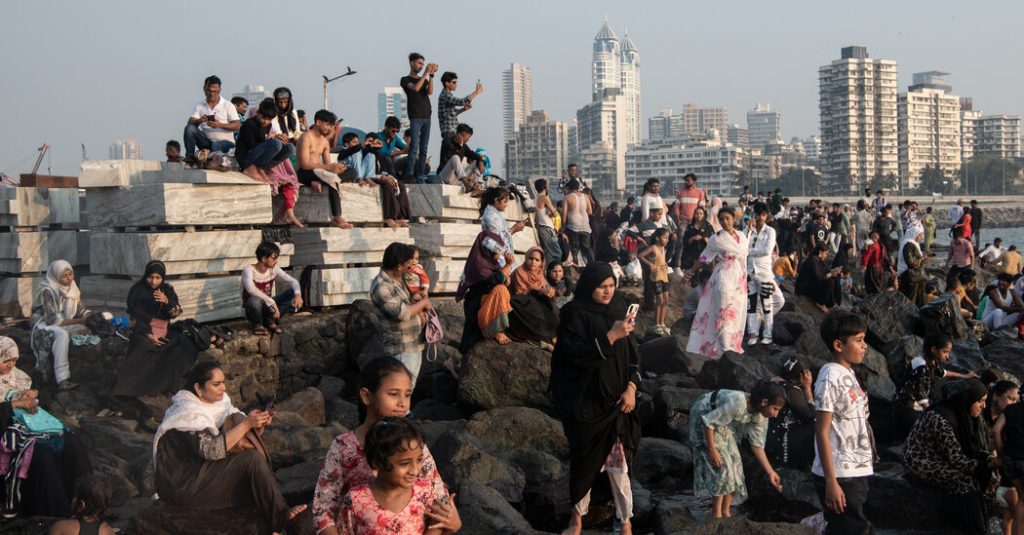Mumbai, India’s financial capital, has become a hotspot for global investors, thanks to its booming economy and stock market value of $5 trillion. The city has undergone a transformation with new infrastructure projects and improved transportation systems attracting foreign investment. Despite uncertainties surrounding the reelection of Prime Minister Narendra Modi, global investors are drawn to India’s reliable growth, stable currency, and fiscal discipline. Compared to other emerging economies like China and Russia, India’s economy is seen as more stable and promising for potential investors.
As India’s economic growth outpaces other emerging markets, institutional investors from around the world are eager to capitalize on the country’s potential. North American pension managers, sovereign wealth funds, and private equity firms are increasingly looking to invest in India’s financial assets. The allocation of India’s representation in influential stock indexes like MSCI has increased significantly in recent years, while China’s has decreased. With investments in Indian government bonds and a booming stock market, foreign investors are growing more interested in India’s diverse range of companies and industries.
India’s large, youthful population and growing middle class make it an attractive market for investment, particularly in the sectors of internet, e-commerce, and technology. This demographic advantage, coupled with an economic growth rate of around 7 percent, positions India as a prime destination for foreign capital. While India’s per-capita income still lags behind China, the country’s rapid development and infrastructure investments are fueling optimism among investors. Mumbai, in particular, has seen a surge in construction and real estate activity, with new skyscrapers and business districts transforming the city’s skyline.
Foreign direct investment remains a key priority for India’s economic growth, with initiatives aimed at attracting more long-term investments from global companies. Nivruti Rai, managing director of Invest India, is leading efforts to facilitate foreign investment in sectors such as healthcare technology, clean energy, and artificial intelligence. Despite a decline in foreign investment in 2023, following global economic challenges, India aims to increase its foreign direct investment significantly in the coming years. Prime Minister Modi’s ambitious goal of a tenfold increase in India’s economy by 2047 underscores the country’s commitment to attracting and leveraging foreign investments for sustainable growth.
As Mumbai continues to emerge as a global financial hub, the city’s role in India’s economic expansion is becoming increasingly prominent. With more foreign investors showing interest in India’s markets, the country’s potential for growth and innovation is drawing attention on the international stage. A combination of favorable economic conditions, demographic advantages, and government initiatives makes India a compelling destination for investors looking to diversify their portfolios and capitalize on the country’s long-term growth prospects.








